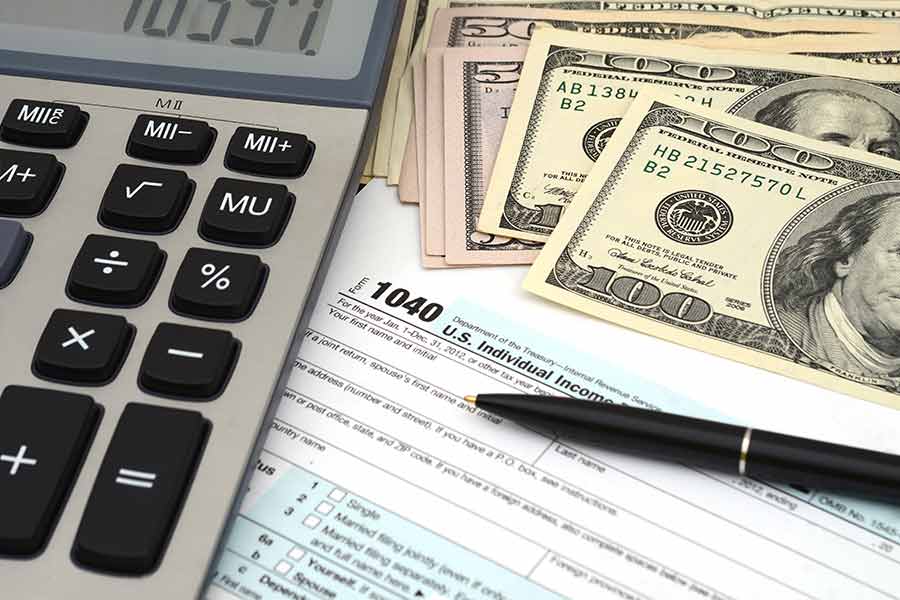Even though April is still a few months away, it’s never too soon to start prepping for tax time. Thanks to the introduction of new tax laws and the expiration of certain tax breaks, completing your 2014 return may be a little more complicated versus previous years. If you’re wondering what the biggest changes are, here’s a rundown of what you can expect once it’s time to file.
Health insurance mandate and the Premium Tax Credit
One of the most talked about changes to the federal tax code centers on the implementation of the Affordable Care Act. Starting this year, health insurance became mandatory for all taxpayers. Those who opt to forgo coverage face a tax penalty of either $95 per person or 1 percent of annual household income. An exemption is available for people who were uninsured for less than three months out of the year and those who aren’t required to file a return because their income is too low.
If you signed up for insurance through the federal marketplace, you’ll have to factor in how claiming the Premium Tax Credit will affect your filing. This is a refundable credit that’s designed to offset some of the expense of paying your premium costs. Your eligibility for the credit is determined based on your income and household size. If your income increased dramatically during the year, you could end up having to repay some or all of the credit at tax time.
Adjustments to certain deductions
The IRS also made some changes this past year with regard to certain deductions. In 2013, you could deduct medical expenses in excess of 7.5 percent of your adjusted gross income. For 2014, that threshold has been increased to 10 percent, which may make it more difficult for some taxpayers to claim the deduction. There is an exception to seniors aged 65 or older and their spouses. They’ll be able to deduct medical costs at the lower limit through 2016.
If you normally claim a deduction for tuition and fees, you won’t be able to do so in the upcoming tax season. The deduction, which allowed you to write off between $2,000 and $4,000 in qualified tuition expenses paid for yourself, your spouse or another dependent, expired at the end of 2013.
Another key deduction that took a beating this year affects small business owners. The Section 179 deduction, which applies to the purchase of qualifying business equipment was reduced from a staggering $500,000 to just $25,000 in 2014. For some business owners who rely on expensive equipment to maintain their day-to-day operations, the drop in the deduction’s value is a major loss.
Foreign income reporting
Taxpayers who live overseas part of the year are required to report income earned abroad, including wages, income from foreign trusts and dividends paid to foreign securities accounts. If you have a foreign bank account, you have to report it on Schedule B. Foreign accounts and assets are reported on Form 8938. Taxpayers whose account balances exceed $10,000 at any time during the year must also file an FBAR or Report of Foreign Bank and Financial Accounts.
For the 2014 tax year, the IRS is now requiring foreign financial institutions to report the details of accounts owned by U.S. citizens and resident aliens. Basically, what it that means for taxpayers is that foreign accounts will be subject to even closer scrutiny than before. Making sure that you’re reporting all of your holdings properly on your tax return can keep you from landing in hot water with the IRS.
Key tax breaks hang in the balance
At the end of 2013, a number of temporary tax breaks known as extenders were allowed to expire but there’s still a possibility that they could be reinstated before the year is out. Earlier this year, the Senate passed a bill that would bring the extenders back but Congress has yet to make a final vote on the issue. Among the most valuable measures on the table are those concerning mortgage liability relief for underwater homeowners, the deductibility of mortgage interest premiums and tax-free distributions from retirement plans for charitable purposes.
If new legislation doesn’t extend these provisions, it could mean a much bigger tax bill for some, particularly homeowners who lost their home to foreclosure or had some of their mortgage liability forgiven after restructuring their loans or completing a short sale. Retirees may also feel the pinch if they end up having to shell out more in taxes for required minimum distributions from their IRA or 401(k). A final decision is expected before the new year and regardless of the outcome, taxpayers should be prepared either way.



Leave a Reply
You must be logged in to post a comment.